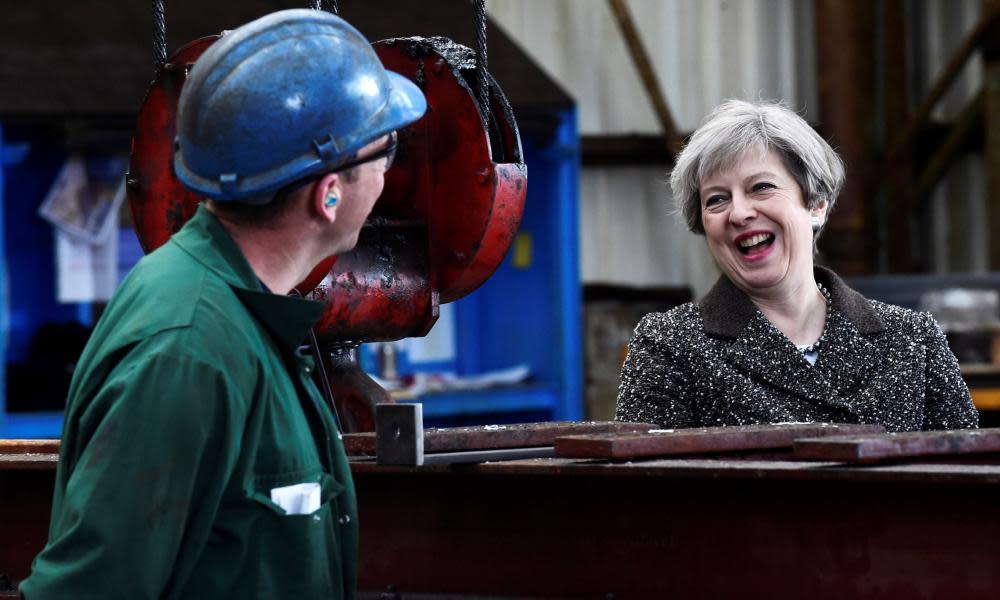A political earthquake – that’s what it takes for the press to notice Wales | Ellie Mae O’Hagan

The Wales Governance Centre at Cardiff University commissioned a poll this week that found the Conservatives lead Labour by 10% in Wales, something previously unthinkable. It’s hard to understate how inconceivable a Tory victory in Wales would be: Labour has won every general election in Wales since 1922. Or, as Peter Mandelson once put it: “The people of south Wales will always vote Labour because they have nowhere else to go.” These new findings upend every assumption that has existed about Welsh voters for the best part of a century.
Mandelson’s words have become infamous to many in Wales because they represent a wider political neglect of the country, including – scandalously – by the left. I was born and raised in north Wales, and this sense of abandonment is felt on a daily basis: from English politics irrelevant to Wales being referred to as “British politics” in the media, to the fact that journalists and public figures rarely visit or even acknowledge the country. Despite having a unique set of political issues, Wales is simply absent from the British public sphere. In turn, Wales doesn’t really have its own public sphere in which to debate political issues, or to build any existential concept of its own nationhood. This is one factor that sets it apart from Scotland.
The consequences of this problem make themselves felt in socioeconomic factors in Wales. The Bevan Foundation found that nearly a quarter of the population live in a household with an income less than 60% of the average. Its director noted: “Reducing poverty seems to have fallen off the current Welsh government’s agenda, with few references to it in Welsh Labour’s manifesto and the post of tackling-poverty minister disappearing.”
Perhaps this poverty is the reason that Wales is “among the worst” places to live for young people, with many choosing to leave rural areas. Although the average house price in Wales was £60,000 cheaper than the UK average in 2015, many find homeownership unaffordable as a result of low wages. Only Cardiff – the one place in Wales that receives any kind of attention – has managed to escape these issues, but the capital is undergoing a detachment from the rest of Wales similar to that of London from provincial England.
So while it’s good that the Westminster-obsessed press is finally talking about Wales, it is beyond infuriating that it needed Welsh voters turning to the Conservatives for it to happen. The fact is, many of the conditions for this perfect storm have been brewing for some time – but nobody was looking.
In a blog written in December 2015, Dr Dan Evans from the University of Cardiff noted that the country’s “mix of deprivation and political alienation is a fertile breeding ground for radicalisation and helps explain the rise of Ukip in former solidly Labour areas: people in Wales are not naturally social democrats, nor are they naturally radical – desperation leaves them susceptible to those who can appear to be ‘straight talking’ and offering a clearly defined enemy: the EU and immigrants”.
This explains why so many people voted for Brexit six months later – and why few seem to regret their decision.
The rise of Ukip in Wales, and the subsequent Brexit vote, will now be capitalised on by Theresa May, who has adopted a hard line that has effectively put Ukip out of business. Luckily for May, the party’s behaviour in the Welsh assembly has been so shambolic that all of the votes it was hoping to gain are now likely to go to the Tories. There is simply no logical reason why Welsh voters wouldn’t adopt the same voting patterns as Brexit voters in England. The myth that the Welsh electorate, which consumes basically the same media as the English, would somehow hold on to an inherent progressivism in the face of industrial decline was always absurd.
It’s undeniable that the Labour party, which has been dumbfounded by the fact that most of its MPs voted remain despite representing leave constituencies, has worsened the situation by attempting to fudge a position on Brexit. Jeremy Corbyn’s historically low approval ratings have had the same effect in Wales that has been well documented elsewhere in Britain. Labour’s problems are giving the Tories a free rein. But this upheaval goes beyond this general election, and anyone who says otherwise has not been paying attention.
The one thing we should have learned from the shocks of the last two years is that political parties cannot allow their base to languish in economic decline and not expect any kind of comeuppance. Ukip persuaded many Welsh voters to stop voting Labour, which is evidence that the traditional voting patterns of Wales are breaking down. So if the Tories win in Wales, and the country loses the substantial structural funding it received from the EU, every politician and journalist in Westminster had better not look away from the terrible consequences.

 Yahoo News
Yahoo News 
